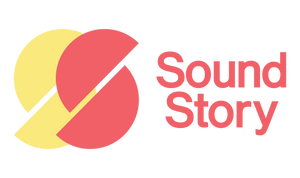Welcome to SWOT by Sound Story, your inside track on the Strengths, Weaknesses, Opportunities and Threats looming for the creative industries.
If you're not already subscribed, you can join SWOT here.
⚡ Trending: Ultra Violette’s high-risk strategy to hit back at Choice. Words by Sally Branson and Phoebe Netto. Source: Mumbrella.
🎵 Music: The rumours were true: triple j has announced a special Hottest 100 of Australian Songs. Words by Mary Varvaris. Source: TheMusic.com.au.
📰 Media: Australia’s obsession with the mushroom murder trial has seen a number of podcasts covering the case enter this month’s chart. Words by Nathan Jolly. Source: Mumbrella.
💰 Advertising: According to WPP Media’s mid-year outlook, more than half of content-driven advertising revenue in 2025 will come from platforms such as TikTok, YouTube, Kuaishou and Instagram Reels. Words by Makayla Muscat. Source: AdNews.
📲 Tech: More Australians now access their news via social media than traditional news outlets and young Australians are increasingly drawn to video news on TikTok and Instagram, according to the 2025 Digital News Report. Words by Amanda Meade. Source: The Guardian.
📜 Government: Australian artists, arts workers, and creative organisations can now access clear information about their rights and obligations through the new Creative Workplaces website. Source: Tony Burke, Minister for the Arts.
🌶️ Spicy: AFL great Warren Tredrea has told the Federal Court he is not 'an entity, legal person, citizen or resident' as he fights to avoid paying legal costs to Channel Nine. Words by Josh Alston. Source: The Daily Mail.
Strength: The (Apparent) Economic Upside
Proponents of AI have an agenda, a narrative and a technology to push, but beyond the buzzwords about ‘efficiencies’ and ‘productivity’, what are the experts actually saying about what’s around the corner?
👉 Well, $115 billion in productivity gains could be added to the Australian economy by 2030 (a 5% uplift in GDP), according to a Microsoft Australia and Tech Council estimate
👉 At a hearing for the Select Committee on Adopting Artificial Intelligence (AI), Microsoft's Managing Director for ANZ, Steven Worrall, said the "responsible development and adoption of AI" would also create 200,000 local jobs.
👉 Others are even more optimistic. A McKinsey study found that adopting AI and automation could add an additional $170 billion to $600 billion (quite the range there) to Australia's GDP by 2030.
👉 And the Future Skills Organisation (FSO) notes Australia's AI workforce grew from 800 workers in 2014 to over 33,000 in 2023. It projects it will be 200,000 strong by 2030.
Weakness: Policy Vacuum
All of this potential growth and upside, though, comes against a backdrop where policy (and even general consensus around ethics, implementation and usage) are virtually nowhere to be seen.
👉 One area where this lack of policy and oversight has become abundantly clear is copyright (and how some big tech companies are blatantly ignoring it).
👉 As noted in the Adopting AI Report from the Select Committee: “Meta is currently subject to numerous lawsuits in the United States for training its AI products on a database of over 200,000 pirated books, including up to 18,000 Australian works.”
👉 When asked to confirm whether it trains its AI products on copyrighted data without authorisation or remuneration, Meta said its large language model (LLM) has exploited so much data that it would be too hard to tell: “The scale of data required to train generative AI models makes the documentation and disclosure of individual training data infeasible. Given the massive scale of data involved, it is impossible to definitively know whether specific publicly-available data is protected by copyright or not.”
👉 Seems fine.
Opportunity: Stop, Collaborate and Listen
Even those against the rapid unchecked adoption of AI in the workplace (think trade unions, workers advocates, those concerned about the sustainability and longevity of Australia’s creative industries), recognise that the opportunities here will emerge from the people.
👉 The Australian Council of Trade Unions (ACTU) said in its submission that giving workers a voice in relation to the use of AI in workplaces is shown to mitigate the risks negative impacts on workers.
👉 Similarly, the Victorian Trades Hall Council (VTHC) said: “Direct engagement with workers is essential to limiting the disruptive effects of automation and building public trust in the digital transformation.”
👉 This engagement and consultation is a huge opportunity, according to Elizabeth O’Shea, the Chair and Founder of Digital Rights Watch.
👉 She said: “In how we use these [AI] tools in the workplace, it's imperative that management… consider and engage with workers early, rather than imposing these tools on workers and then either being surprised that it doesn't work or being surprised that people are feeling exploited, further disenfranchised and as if they are not having their workplace rights enforced. In this early stage of the industry, there's a real opportunity here to impose [consultation] requirements on workplace uses of AI that are consultative, for benefits in both directions: for people who work in these workplaces and for the objective of the workplace.”
Threat: Threats, Threats Everywhere
The Select Committee on Adopting Artificial Intelligence (AI) noted that generative AI in particular is able to augment and automate certain creative processes, meaning the creative industries are at the forefront of dealing with the impacts of introducing AI into the workplace… And that, well… It poses a lot of threats.
👉 Despite promises of jobs growth and ‘job augmentation’ rather than ‘job losses’, a number of submissions to the Select Committee noted that the people who lose jobs to AI won’t be the same people who benefit from the sector’s growth.
👉 This could, they contend, lead to a new ‘class’ of people, fighting for a dwindling supply of resources, and putting downward pressure on wages, conditions and career pathways.
👉 And speaking of career pathways, as AI begins gobbling up the ‘easier’ tasks of creative and media companies, what will entry pathways look like? How will graduates, trainees, cadets and new entrants get a foot in the door, when their jobs no longer exist?
👉 If you want more threatening/ terrifying reading, try these recent headlines: ‘‘It’s terrifying’: WhatsApp AI helper mistakenly shares user’s number’ (from The Guardian) and Amazon boss tells staff AI means their jobs are at risk in coming years (also from The Guardian).
The Fun Stuff
Quote of the Week: “Generally actors don’t talk about pay in public because it’s ridiculously disproportionate to what we do — putting on makeup and funny voices — and just upsets the public. But compared to what people normally get paid for big television shows, that’s a very low price,” White Lotus actor Jason Isaacs speaking to Vulture about his US$40,000 ($61,626) per episode pay packet (via Pedestrian).
📺 Watch of the Week: We love to see international streamers making local content. Survivors is an adaptation of the Jane Harper novel of the same name, and it’s worth watching even if you’ve already read the book. The cast is outstanding. The story is stressful. And whoever did the location scouting deserves a raise. You can watch it on Netflix now.
🏆 Client Tidbit(s): It’s been a massive few weeks for Sound Story clients, with moments and milestones galore. Support Act has bolstered its leadership team by adding a First Nations Program Manager to the mix, and a Campaign Manager for AusMusic T-Shirt Day. Untitled Group, meanwhile, placed 12th in Billboard's Mid-Year Top 20 Promoters list. And to celebrate turning 10, the Group is throwing a massive birthday bash at The Wool Store. Plus, SCA’s Dave Cameron chatted to Mumbrella’s Nathan Jolly about its survey success. [Exhales].





